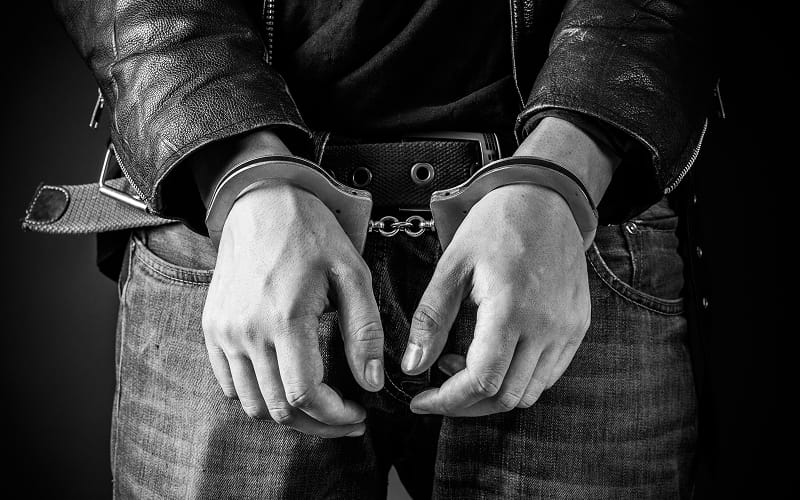Being accused of theft can be overwhelming, especially if it was never intentional. Many assume that simply explaining the mistake will make the charges disappear, but the legal system does not work that way. In Virginia, theft laws require proof that a person knowingly took someone else’s property without permission. The case may not hold up in court if intent cannot be established.
This article explores Virginia’s theft laws, how intent is evaluated, common scenarios where theft may be unintentional, and legal defenses that may apply. It also examines potential case outcomes and how a strong legal defense can influence decisions.

Understanding Theft Charges In Virginia
Theft, also known as larceny in Virginia, involves taking another person’s property without permission and with the intent to keep it permanently. The law does not distinguish between deliberate theft and honest mistakes unless intent is examined.
For example, if someone picks up the wrong bag at a restaurant, they may not have committed a crime. However, if they knowingly take a bag that does not belong to them and refuse to return it, that could be considered theft.
Virginia classifies theft into two categories: petit larceny and grand larceny. Petit larceny involves stealing property valued at less than $1,000, while grand larceny applies to higher-value items. Grand larceny carries harsher penalties, including potential felony charges. The classification of the charge impacts the severity of the legal consequences, but intent is still a crucial factor in determining guilt.
Prosecutors must prove that the accused knowingly took another person’s property with the intent to keep it. The defense can challenge the charge if there is reasonable doubt about intent.
A strong legal argument can highlight the absence of criminal intent and potentially lead to the dismissal of the case. Understanding these legal distinctions is the first step in building a defense against wrongful theft accusations.
The Importance Of Intent In Theft Cases
In criminal law, intent also called “mens rea” refers to a person’s mental state when committing an act. Courts evaluate whether a person knowingly engaged in unlawful behavior or if the incident was a misunderstanding.
For example, if someone walks away with another person’s umbrella, believing it is theirs, there is no intent to steal. However, if they take the umbrella knowing it belongs to someone else, intent can be established.
Prosecutors must prove intent beyond a reasonable doubt for a theft conviction to hold. They rely on evidence such as surveillance footage, witness statements, and the accused’s behavior. If an individual returns the item upon realizing their mistake, it weakens the prosecution’s argument. On the other hand, attempting to hide or sell the item may strengthen the case against them.
Lack of intent can be a strong defense in a theft case. Defense attorneys often focus on proving that their client did not knowingly commit a crime. If intent is questionable or unproven, the case may not proceed to trial. Demonstrating a lack of criminal intent can significantly impact the outcome, potentially leading to reduced charges or even a dismissal.
Common Scenarios Of Unintentional Theft
Many theft charges stem from misunderstandings rather than criminal intent. Everyday actions can sometimes lead to legal trouble if the circumstances are misinterpreted. Understanding common scenarios of unintentional theft can help illustrate how intent plays a key role in these cases.
Mistakenly Taking Someone Else’s Property
People often grab similar-looking items in crowded places like restaurants, gyms, or offices by mistake. If someone mistakenly takes another person’s bag, wallet, or phone, it may appear as theft. However, if they return the item upon realizing the mistake, this supports a lack of intent.
Forgetting To Pay For An Item

Shopping while distracted or in a rush can lead to forgetting to pay for an item. For example, if a person absentmindedly walks out of a store with an unpaid product in their cart, they could be accused of shoplifting. A strong legal defense can clarify the misunderstanding if there is no intent to steal.
Believing You Had Permission
Borrowing an item, assuming it was allowed, can lead to a theft accusation. If a person uses a friend’s car, tools, or other belongings without formal permission, the owner might report it as theft. However, proving that the accused reasonably believed they had permission can serve as a valid defense.
Unintentional theft is more common than many realize, often resulting from simple mistakes or miscommunication rather than criminal behavior. Misunderstandings about ownership, forgetting to pay, or assuming permission can all lead to legal trouble. Proving a lack of intent is crucial in these cases. Next are possible legal defenses for unintentional theft.
Legal Defenses For Unintentional Theft
Facing theft charges due to an honest mistake can be both frustrating and overwhelming. The legal system often treats theft as an intentional act, but not every accusation stems from deliberate wrongdoing. If a person did not intend to steal, they should not be punished as if they had intentionally committed a crime.
Several legal defenses can help establish that theft was unintentional. The key is demonstrating that there was no intent to unlawfully take or keep someone else’s property.
Lack Of Intent
Intent is the foundation of any theft charge. Without it, the prosecution’s case becomes significantly weaker. If a person unknowingly took an item, they cannot be guilty of theft because they did not mean to steal. For example, grabbing the wrong bag from a coat rack at a restaurant does not indicate a criminal act it shows an innocent mistake.
A strong defense can present evidence that the accused did not intend to deprive the rightful owner of their property. This may include witness statements, video footage, or immediate efforts to return the item once the mistake was realized.
Mistake Of Fact
A mistake of fact occurs when someone genuinely believes they have the right to take an item. If two identical backpacks are placed next to each other, it is reasonable for a person to grab the wrong one. Similarly, if an individual takes a phone thinking it is theirs, there is no criminal intent.
If the evidence supports the claim that the theft was accidental, the court may determine that no crime was committed. The stronger the proof of misunderstanding, the greater the chance of case dismissal.
Consent
If a person had permission to use or borrow an item, the act does not meet the legal definition of theft. Sometimes, property owners forget that they allowed someone to use their belongings and later report them stolen. A friend might lend a tool or vehicle and then mistakenly accuse the borrower of theft.
A solid defense will gather any available proof that consent was given, such as text messages, emails, or witness testimony. If an individual had a reasonable belief that they were allowed to take or use an item, theft charges may not stand. Courts often consider cases of miscommunication when reviewing theft accusations.
Challenging Weak Evidence
Prosecutors must present strong, clear evidence to prove theft beyond a reasonable doubt. A defense attorney can challenge its validity if their case relies on unclear surveillance footage, unreliable witness statements, or circumstantial evidence. Pointing out inconsistencies and gaps in the prosecution’s case can cast doubt on the theft accusation.
A strong legal defense is essential when facing theft charges based on a misunderstanding. The goal is to show that the accused did not act with criminal intent. If the prosecution fails to prove otherwise, the case may not stand up in court.
Potential Outcomes In Unintentional Theft Cases
When intent is absent, several case outcomes are possible. Prosecutors may choose to drop the case, or the defense may negotiate a reduced charge. The resolution depends on the strength of the legal defense and the evidence presented.
Case Dismissal
The judge may dismiss the case if the prosecution cannot prove intent. Lack of sufficient evidence weakens the argument for a conviction. A well-prepared defense can emphasize the misunderstanding and demonstrate that no crime occurred.
Reduction Of Charges
If the court believes an individual acted without criminal intent but still caused harm, charges may be reduced. A felony theft charge could become a misdemeanor, minimizing legal consequences. Plea deals may also be an option, allowing the accused to avoid severe penalties.
Alternative Sentencing Options
In some cases, courts offer alternative sentences such as community service, restitution, or theft prevention courses. These alternatives focus on rehabilitation rather than punishment. A strong legal defense can increase the likelihood of securing a favorable outcome.
When intent is unclear, then dismissal, reduced charges, or alternative sentencing may be possible. A strong defense can highlight misunderstandings and help achieve a fair resolution.
Fairfax County Criminal Attorneys Defends You Against Unintentional Theft
Fairfax County Criminal Attorneys understands that not every theft accusation stems from criminal intent. Although facing charges for a misunderstanding can be stressful, legal representation can make all the difference. Our attorneys diligently protect our clients’ rights and challenge weak prosecution claims.
Our legal team analyzes the case details and develops a personalized defense strategy. Whether negotiating with prosecutors, arguing for case dismissal, or presenting a strong defense in court, we aim for the best outcome for our clients. We are committed to safeguarding reputations and minimizing legal consequences.
We are ready to fight for you if you have been accused of theft due to an honest mistake. Our experience in Virginia’s criminal justice system allows us to navigate even the most challenging cases. If you are facing theft charges due to an unintentional act, seeking legal assistance is crucial. Contact us today to discuss your case and explore your options.
Intent is a critical factor in theft cases. A lack of criminal intent can significantly impact the outcome, leading to case dismissal or reduced charges. Misunderstandings, mistaken identity, or forgetfulness should not result in severe legal consequences. With a solid defense strategy, it is possible to challenge theft accusations effectively. Fairfax County Criminal Attorneys provides dedicated legal representation to protect clients’ rights and secure favorable results.




